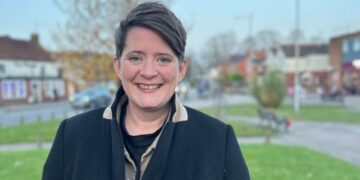A NEW strategy is being implemented to try and help Reading’s homeless population receive appropriate support.
Reading Borough Council says a recent poll of rough sleepers in the borough found that 25 of the 36 had no connections here, leading them to launch a new service aimed at helping them reconnect with their hometowns, and receive support there.
The number of rough sleepers has increased from 22 last year.
The council says that of this year’s total, 11 of the rough sleepers had a confirmed connection to the town via current or previous residence, family, or employment.
As such, they were known to services and had been offered help, such as an immediate accommodation offer, or as a priority for forthcoming temporary or supported accommodation bed spaces.
The number of women sleeping rough is low.
The Council believes this is attributable to the Nova Project – a specialist women-only supported accommodation support provision from the charity St Mungo’s.
A new ‘navigator’ post has been created to work with people who sleep rough who do not hold an immigration status and have limited access to public funds, while a cross-Berkshire strategic role has also been created to support with reconnecting rough sleepers in Reading across neighbouring local authority borders.
Funding comes from a £2.8m allocation from the Department for Levelling Up, Housing & Communities (DLUHC), and lasts for two-and-a-half years.
It will also be used to strengthen of existing provision in Reading, which includes an expanded Housing First service to make at least 20 properties available for clients with multiple and complex needs.
Cllr Ellie Emberson, lead member for housing at Reading Borough Council, said the borough offered ‘significant support’ for rough sleepers.
“It is important that as a Council we show compassion and extend the support already on offer, by reconnecting people with their hometown where they will be eligible for support,” she said.
“We know that homelessness and rough sleeping is a complex issue. The ongoing cost of living crisis combined with the rising number of people nationally with no recourse to public funds, sadly means that figure is on the up.
“The Council’s direction will continue to aim for a sustained reduction in rough sleeping in Reading, not only through offers of immediate accommodation, but through a holistic approach, including one-to-one support in the hope of breaking the cycle of rough sleeping for those struggling.”
This support, she continued, included 274 beds in supported accommodation, and the additional outreach staff would help broaden its support particularly at weekends.
This was also welcomed by Cllr Jason Brock, the leader of the council, who said he was pleased to see the extra resources being made available.
“There was a time in the recent past when we know that other local councils would direct people sleeping rough in their areas to go to Reading.
While I am assured that is no longer the case, it is important that this reconnection work takes place so that people with no local connection can access the support they need in their hometowns,” he said.
“Reading Borough Council and our voluntary sector partners offer a comprehensive approach and wraparound support to those sleeping rough in our town, but our ability to continue to develop that offer is contingent on neighbouring authorities playing their part too.”
























